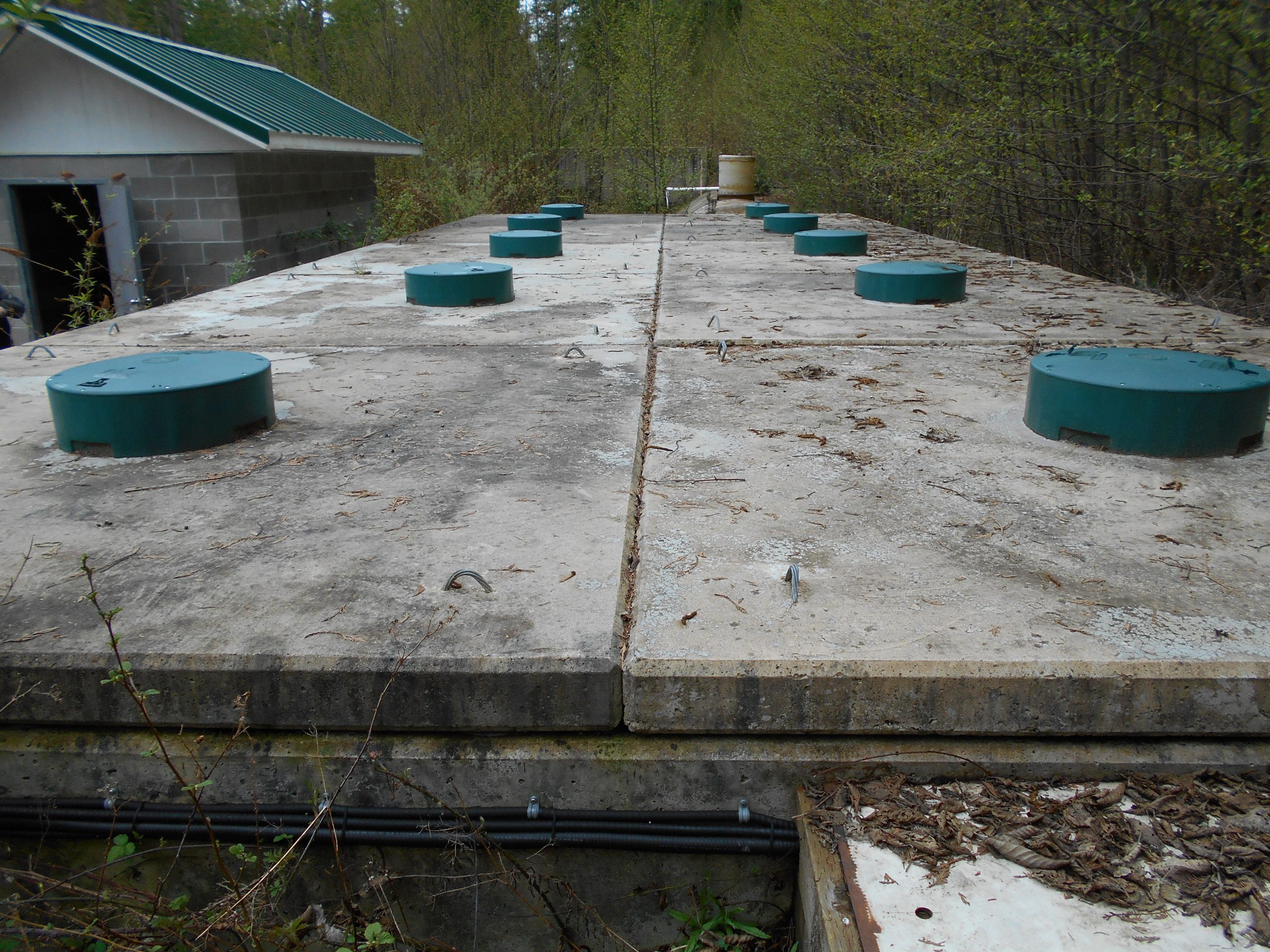Sakinaw Ridge Wastewater Treatment Facility
The Sakinaw Ridge Wastewater Treatment Facility was installed by a developer in 2008. Operations were turned over to the SCRD in 2014. Currently, 29 properties use the system.
Advice for Users
Your wastewater rates are based on maintenance costs. To keep rates to a minimum, please take some time to read the advice below to keep your system functional and healthy.
The use of garburators is strongly discouraged as they increase the organic loading on the facilities. This increase will adversely affect the treatment process resulting in higher operation costs and higher user fees.
Non-biodegradable material such as disposable diapers, feminine hygiene and sanitary wipes, rubber items, cigarette filters/butts, hair, etc., should not be flushed down the toilet. Please put them in the garbage.
High strength chemicals, such as acid, caustic cleaners, gasoline, oil, turpentine or those used for developing photographs should not be dumped into the wastewater facility. Disposal of cleaning disinfectants and the use of chlorine bleaches in laundering should be kept to normal domestic use. Automatic flush disinfectants such as “Tidy-bowl” and “Sani-flush” are particularly harmful to all forms of biological wastewater treatment and should not be used.
Do not pour large amounts of grease into wastewater lines. All waste grease should be put in a glass jar or an old milk carton and placed in the garbage.
Use of low-suds, biodegradable laundry detergents is recommended. Liquid is preferable to powder as it breaks down quicker. Excessive use of detergents can cause foaming and odour problems in treatment plants. When laundering clothes, please follow washing machine or laundry detergent manufacturers’ recommendations regarding the quantity of detergents required.
Don't Flush!
The following items should not be flushed down your toilet. Instead do the following:
- Bandages
- Cat litter
- Condoms
- Cigarette filters or butts
- Cotton balls
- Dental floss
- Disposables (diapers, sanitary napkins)
- Tampons or applicators
- Wipes: baby, personal hygiene, cleaning (even those labelled as flushable)
- Metal objects
- Plastics
- Food waste
- Cooking fats
- Oils
- Hair
- Paper towels
- Paper napkins
- Medications
- Vitamins
- Acids
- Caustic cleaners
- Gasoline
- Oil
- Paints
- Solvents
Good to Read
Check out the reports below for information on studies and capital plans.
